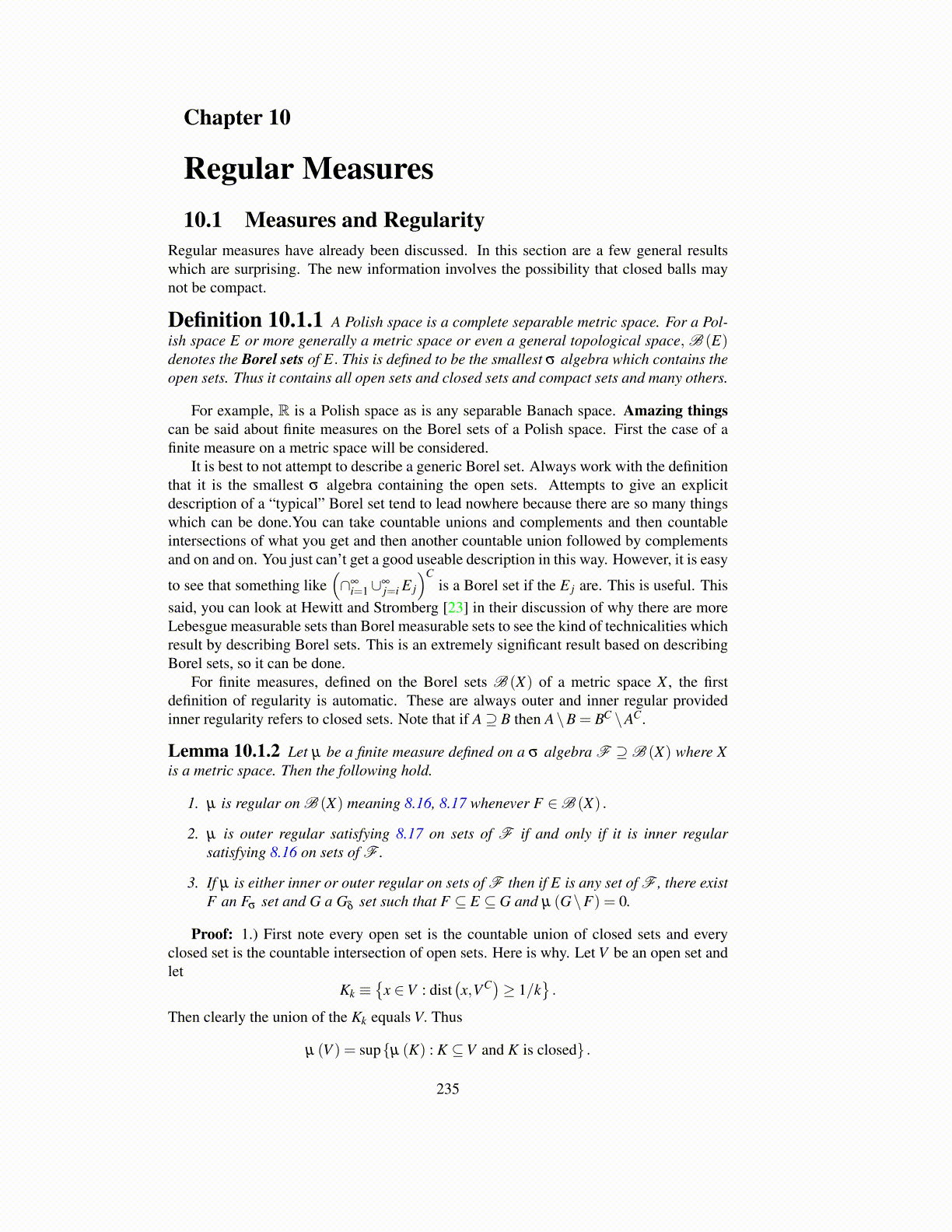
Chapter 10
Regular Measures10.1 Measures and Regularity
Regular measures have already been discussed. In this section are a few general resultswhich are surprising. The new information involves the possibility that closed balls maynot be compact.
Definition 10.1.1 A Polish space is a complete separable metric space. For a Pol-ish space E or more generally a metric space or even a general topological space, B (E)denotes the Borel sets of E. This is defined to be the smallest σ algebra which contains theopen sets. Thus it contains all open sets and closed sets and compact sets and many others.
For example, R is a Polish space as is any separable Banach space. Amazing thingscan be said about finite measures on the Borel sets of a Polish space. First the case of afinite measure on a metric space will be considered.
It is best to not attempt to describe a generic Borel set. Always work with the definitionthat it is the smallest σ algebra containing the open sets. Attempts to give an explicitdescription of a “typical” Borel set tend to lead nowhere because there are so many thingswhich can be done.You can take countable unions and complements and then countableintersections of what you get and then another countable union followed by complementsand on and on. You just can’t get a good useable description in this way. However, it is easy
to see that something like(∩∞
i=1∪∞j=i E j
)Cis a Borel set if the E j are. This is useful. This
said, you can look at Hewitt and Stromberg [23] in their discussion of why there are moreLebesgue measurable sets than Borel measurable sets to see the kind of technicalities whichresult by describing Borel sets. This is an extremely significant result based on describingBorel sets, so it can be done.
For finite measures, defined on the Borel sets B (X) of a metric space X , the firstdefinition of regularity is automatic. These are always outer and inner regular providedinner regularity refers to closed sets. Note that if A⊇ B then A\B = BC \AC.
Lemma 10.1.2 Let µ be a finite measure defined on a σ algebra F ⊇B (X) where Xis a metric space. Then the following hold.
1. µ is regular on B (X) meaning 8.16, 8.17 whenever F ∈B (X) .
2. µ is outer regular satisfying 8.17 on sets of F if and only if it is inner regularsatisfying 8.16 on sets of F .
3. If µ is either inner or outer regular on sets of F then if E is any set of F , there existF an Fσ set and G a Gδ set such that F ⊆ E ⊆ G and µ (G\F) = 0.
Proof: 1.) First note every open set is the countable union of closed sets and everyclosed set is the countable intersection of open sets. Here is why. Let V be an open set andlet
Kk ≡{
x ∈V : dist(x,VC)≥ 1/k
}.
Then clearly the union of the Kk equals V. Thus
µ (V ) = sup{µ (K) : K ⊆V and K is closed} .
235